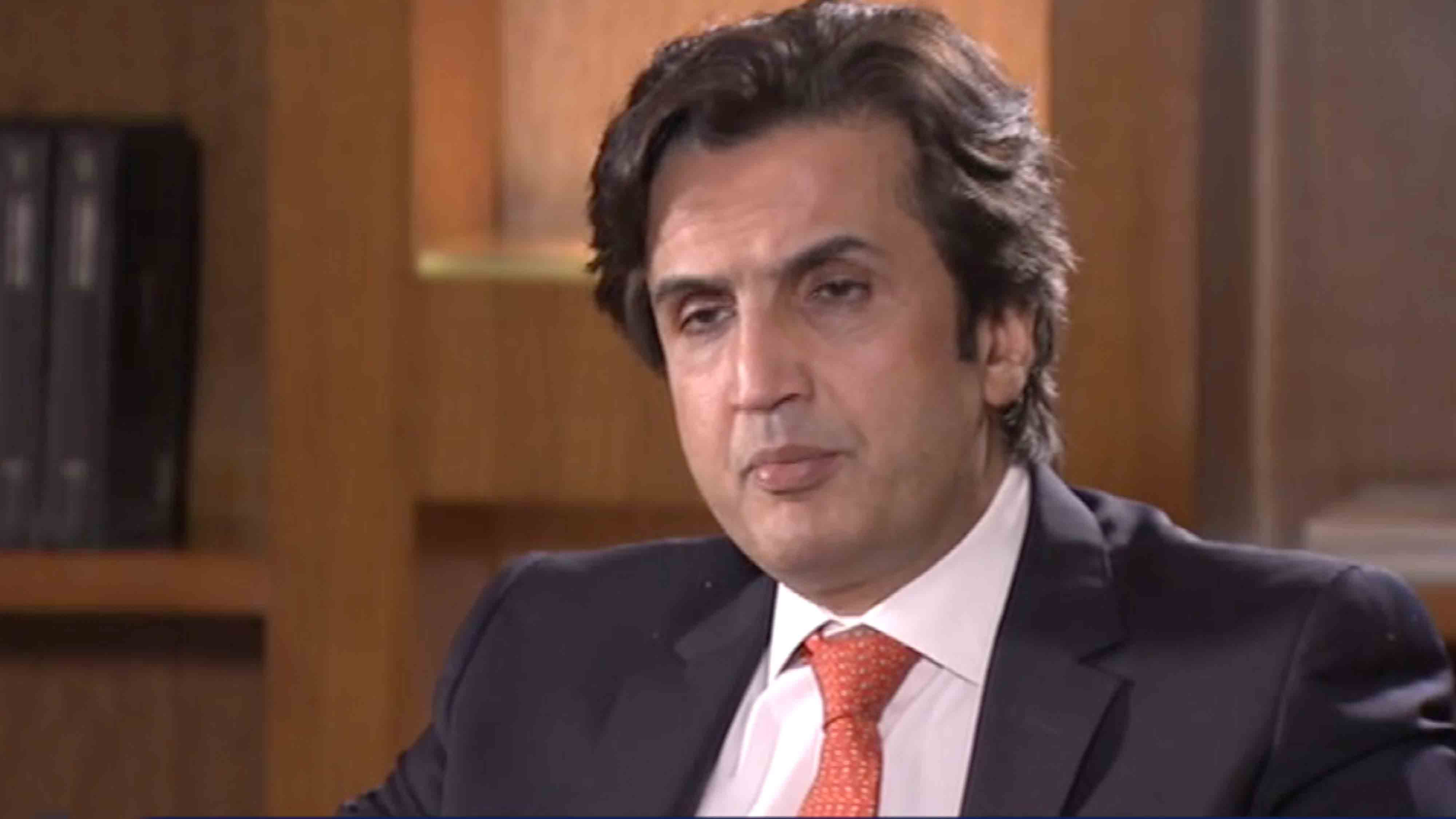
Economy
21:24, 20-Dec-2018
China, Pakistan to broaden scope of China-Pakistan Economic Corridor
Updated
20:49, 23-Dec-2018
CGTN's Feng Yilei
04:28

The 8th meeting of the Joint Coordination Committee (JCC) on China-Pakistan Economic Corridor (CPEC) was held in Beijing to review progress on ongoing projects and identify new initiatives in socio-economic development, industrial cooperation, Gwadar, transport and energy.
Amid concerns over the expanding mega project, Pakistan's Minister of Planning, Development and Reform, Khusro Bakhtiar, who is also the head of the Pakistani delegation, shared with CGTN's reporter Feng Yilei the future of joint efforts.
Reporter: Pakistan has pledged timely completion of the CPEC as a national priority. How are the projects progressing and what is the future trajectory of cooperation to realize CPEC's full potential?
Bakhtiar: The early-harvest projects under CPEC are going as per timelines. And we have seen considerable success, especially in the energy sector. I must say four or five years ago there was a gap between the demand for energy in Pakistan and the supply of energy. Under the CPEC, one of the dividends that comes to Pakistan is the energy demand of Pakistan is fulfilled and the generation capacity meets the demand and the need which are industrial needs. Energy is one basic ingredient for any economy to grow. That's a dividend which we see happening in Pakistan and there are a lot of projects in the pipeline under the early harvest in the energy sector, which will also be taken up in coming years.
Bakhtiar: Similarly, it was also decided between the leadership that the scope of the CPEC needs to be broadened. In the JCC, we have already expanded the scope of CPEC by adding another dimension of social economic development joint working group that will come a long way in addressing the social economic development needs of people of Pakistan, especially in the areas which are marginally less developed, and will address poverty. The issue of poverty alleviation in Pakistan again is the focus of the present government. No country in history has lifted so many people out of poverty than what China has exhibited in the last few decades.
Reporter: China and Pakistan have agreed to open up the CPEC to other countries. What targets and mechanisms have been set to achieve mutual benefit?
Bakhtiar: There is a couple of projects which can attract trilateral or collateral investments with different countries or two or three different parties and it becomes a shared benefit for other countries to come and seek out of the CPEC. We are looking at potential projects which can be offered third country partnership. The potential of CPEC to be fully harnessed is that it needs the whole connectivity all the way not just from north to south but to connect the CPEC routes, the BRI routes going from east to west. In the long-term framework of BRI, whilst this connectivity is put together, I think this is a potential for that economic synergy to be created. The potential in the long term is huge. And it's win-win for all the countries and all the economies in the region.
Reporter: What are the main challenges faced by the CPEC?How will both sides respond to "debt trap" and other criticisms, and properly address issues like transparency and security?
Bakhtiar: Because of the geopolitical situation and the politics at play, you will find a lot of detractors of BRI and CPEC. You hear such voices finding its way into different media main streams. When it comes to the “debt trap”, we are very clear that CPEC is putting the platform for our economic growth. It's an investment in the much-needed infrastructure upgrading. Those are the foundation on which a country of 200 million people and an economy which can grow and achieve the potential which can only be harnessed through such an investment. And the portion of government-to-government loan on the CPEC is six billion, which has gone into infrastructure development. Today Pakistan's total external debt is around 94 or 95 billion. So that's a very small portion of our external debt liabilities. So in policy making among the political parties in Pakistan, in terms of academics and business community, there's a broad base consensus that CPEC is a true instrument – if well-planned and executed, can really benefit and multiply Pakistan's economic growth.
Bakhtiar: Security of the Chinese personnel working on CPEC projects is a priority for us. For that very reason, in Pakistan, we have structured special security division of almost more than 12,000 to 13,000 people. As you just witnessed, in recent past the cowardly attempt on the consulate in Karachi was done by the same forces which don't want to see the progress of BRI and CPEC but law enforcement agencies foiled that. The very next day, I went to the Chinese embassy. The Chinese ambassador and I further resolved that such cowardly attempts only strengthen our resolve to take CPEC to further heights.

SITEMAP
Copyright © 2018 CGTN. Beijing ICP prepared NO.16065310-3
Copyright © 2018 CGTN. Beijing ICP prepared NO.16065310-3